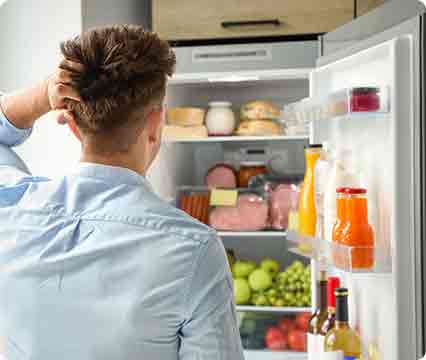The role of craving in emotional and uncontrolled eating
This 2018 study applied the cognitive processing model of alcohol craving (CPMA) while investigating the role of food craving in the already well-established restrained eating–overeating relationship linked with binge eating disorder (BED). A sample of 1058 respondents completed an online survey assessing restrained eating, trait food craving, uncontrolled eating, and emotional eating. After implementing the CPMA, food craving was found to significantly affect, in an indirect manner, the association between restrained eating and both uncontrolled and emotional eating. Gender did not appear to influence the dynamics between restrained eating and different facets of overeating. This study has indicated that to target binge eating behaviors, it may be more effective to give consideration to the activation of food craving rather than to the reduction of restrained eating. Moreover, Verzijl et al. have uncovered that food craving is a target with potential to cut down people’s binge and overeating behaviors, regardless of the person’s gender. [NPID: craving, behavior, CPMA, binge eating, restrained eating, trait food craving, uncontrolled eating, emotional eating, overeating]
Year: 2018
 Navigation
Navigation






